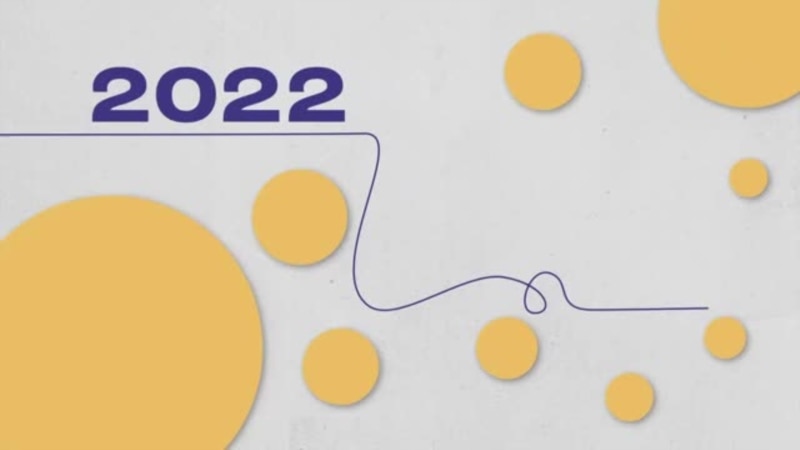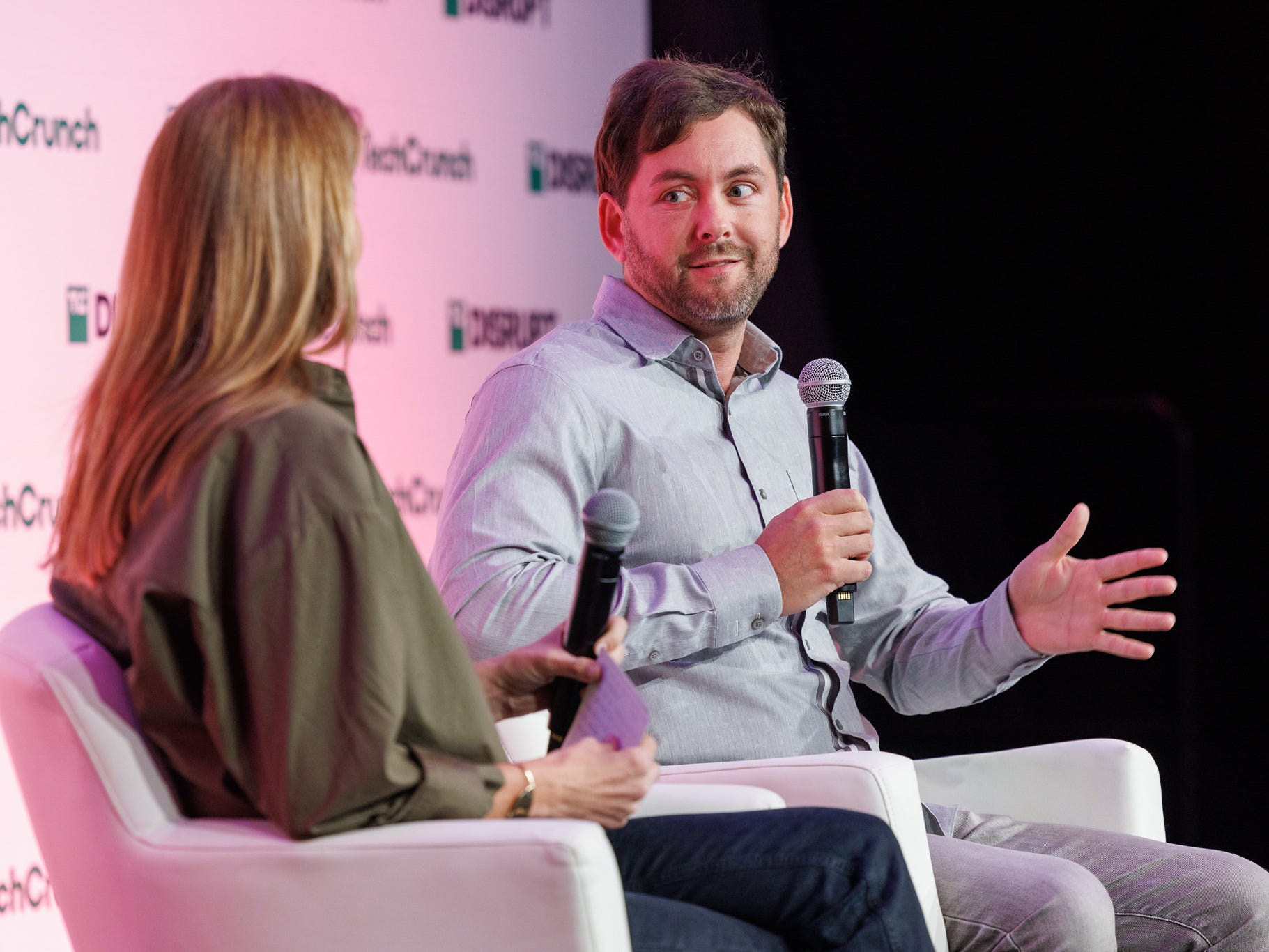'People say I don't really need a wheelchair'
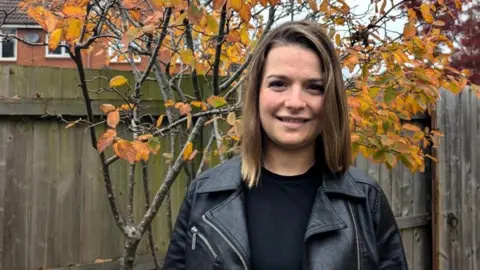 Amy Anderson
Amy AndersonAmy Anderson says she already felt on the "fringe" of the disabled community when a colleague's husband questioned whether she genuinely needed a wheelchair. She was diagnosed with cerebral palsy aged two and her symptoms vary day to day. The comment, while not intended to cause offence, had hurt. And so her "Not Disabled Enough" social media campaign was born.
"Sometimes I feel like I'm not disabled enough to do stuff," Amy says. "But on the other hand, too disabled to do other things.
"I can't be the only one feeling this way."
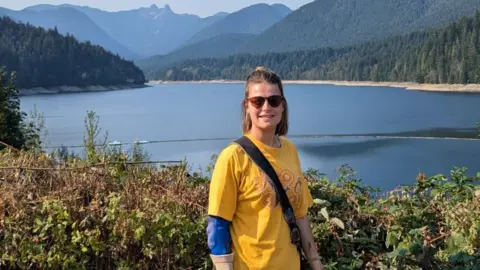 Amy Anderson
Amy AndersonAmy, 31, a primary school teacher from Woodbridge, Suffolk, set up the Not Disabled Enough page in May.
The idea came from speaking with friends who agreed more awareness was needed for people like Amy who used a wheelchair part-time.
Amy now uses Instagram, TikTok and a blog, to share experiences of someone who feels "stuck in the middle".
"Once I was in my wheelchair in Woodbridge and I saw a colleague, and she said 'I've never seen you in a wheelchair', and I overheard her husband say, 'but she doesn't really need it, does she?'," Amy says.
"I hear stuff like that all the time.
"Even when I was younger some of my family who didn't know me that well would ask why I was using a wheelchair.
"While people on the other end of the spectrum often say, 'I didn't know you were disabled, I didn’t even notice' which means I sometimes miss out on support."
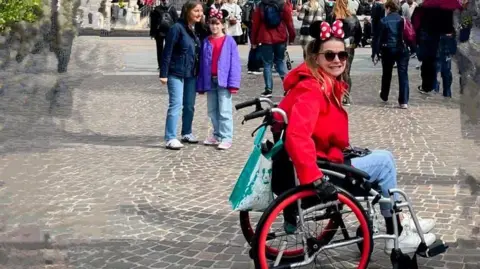 Amy Anderson
Amy AndersonCerebral palsy is the name for a group of lifelong conditions that affect movement and co-ordination.
It is caused by a problem with the brain that develops before, during or shortly after birth, and affects about one in every 400 babies born in the UK each year.
The condition often puts a lot of strain on the body and cause problems such as painful joints.
"There's only a small percentage of people in wheelchairs who actually can't walk," Amy says.
"A lot of the time it's for fatigue or longevity - so they can manage to do things.
"People thought I was just being dramatic or would say 'but you can walk'."
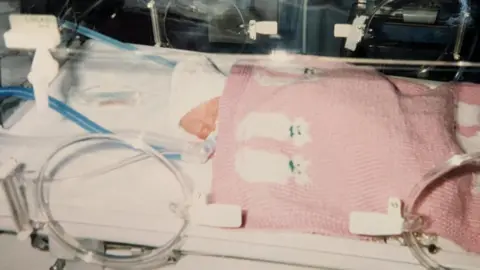 Anderson family
Anderson familyCensus data published last year showed 9.8 million people in England reported having a long-term disability which limited their day-to-day activities, while NHS figures published earlier this year showed 665,000 people in England were registered wheelchair users.
Amy adds: "I know I'm never going to be able-bodied, but how do I push myself in the other direction of being a proud member of the disabled community?"
 Amy Anderson
Amy AndersonIn May, Amy quit her job and rented out her house in Felixstowe to travel the world for a year.
She says she initially applied for a working visa in Australia but was denied due to the state being concerned about potential medical costs, even though Amy reported being largely self-sufficient.
Her sights were then set on New Zealand where she faced similar issues.
"I probably cried for a week," she says.
"I can't hike up mountains, go on trains or go on rickety buses. It would break me and I wouldn't enjoy it.
"But I also don't need hoists and carers to come with me."
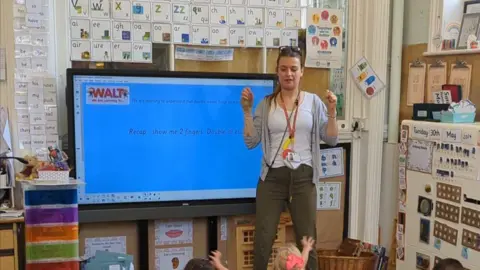 Amy Anderson
Amy AndersonAmy eventually got a job at a summer camp in the United States where she worked with 30 girls aged between 7 and 11.
She says the camp made adjustments to help accommodate her disability.
"Working with kids is in my soul and I want to teach them that disabled isn't a dirty word, and when I say it I don't have to flinch," Amy adds.
She now hopes to travel to South Africa and Ireland.
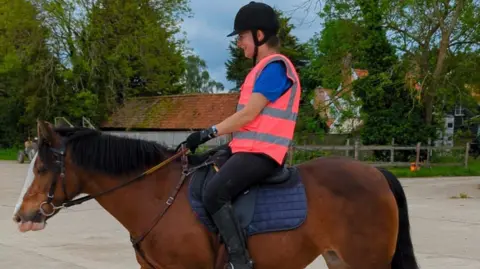 Amy Anderson
Amy AndersonAmy admits there have been times in the past where she has not asked for help.
In February, she uploaded a video to social media of her crying in a Paris train station, having not requested special assistance because it "felt like cheating someone who really needed it".
"I am learning that I am enough, my needs matter and they are my own," she says.
"I want to raise awareness to say 'yes I am managing but there's a lot that's going on behind the scenes'.
"But also to show disabled people that we can do this, and I do feel a part of your community."
Follow Suffolk news on BBC Sounds, Facebook, Instagram and X.





